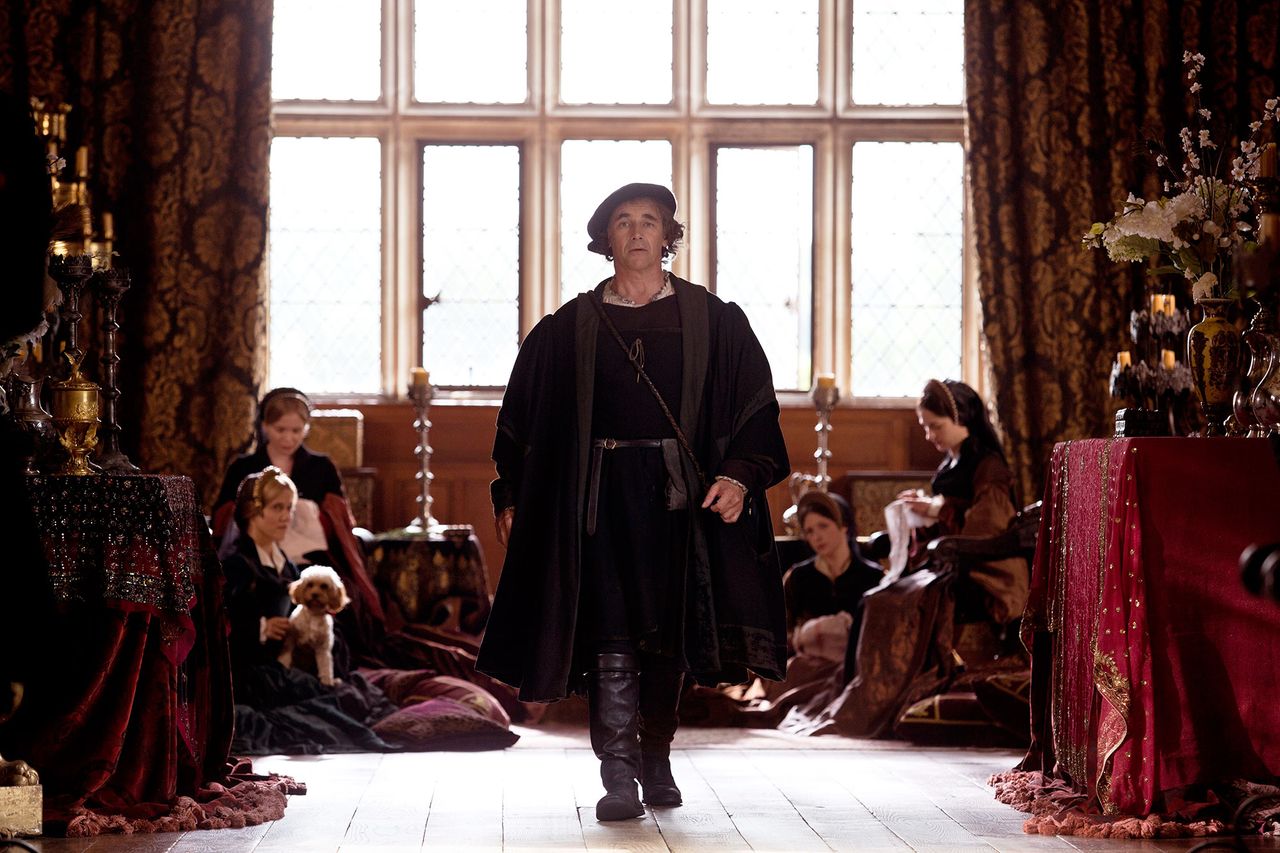Wolf Hall is the ideal middle ground between Downton Abbey and Game of Thrones
The terrific British historical drama, which premieres in the U.S. on Sunday, successfully translates Hilary Mantel's acclaimed novels for the small screen


Any American who hasn't taken a class on British history (or watched Showtime's soapy, half-forgotten The Tudors) might not be familiar with the historical events that comprise Masterpiece Theater's latest British period drama, Wolf Hall, as it arrives stateside. Wolf Hall is based on the terrific Man Booker-winning novel by Hilary Mantel (and its sequel, Bring Up the Bodies), which chronicles the court of Henry VIII through the eyes of his infamous adviser, Thomas Cromwell, a much-maligned historical figure who Mantel re-imagines as a pragmatic, ahead-of-his-time hero.
If you feel lost in the first 15 minutes of Wolf Hall's very strong premiere episode on Sunday, hang tough — you'll get there by the end. Once the story settles in, the complex chain of familial connections (and seemingly endless list of people named "Thomas") will start to feel like second nature. This era of television has trained audiences for sprawling period dramas like Wolf Hall, which combines the historical pull of Downton Abbey with the twisty political machinations of Game of Thrones.
But here, for your convenience, is the Cliff's Notes version: King Henry VIII (Homeland's Damian Lewis) is unhappy with his wife, Queen Catherine, who has never given birth to a son. Bored with his marriage of 18 years, and obsessed with fathering a male heir, he seeks to dissolve his marriage and begin a new one with the young, ambitious Anne Boleyn (Claire Foy), who swears she can give him a son. Unfortunately, Henry VIII's nuptial desires have the not inconsiderable side effect of creating a major political crisis: with the pope, who supports Catherine; with Spain, Catherine's home country; and with the commoners, who have grown to love their queen. Into this hornet's nest steps Cromwell (Mark Rylance), a common-born man whose intelligence and implacability has led to an unlikely but meteoric political rise.
Subscribe to The Week
Escape your echo chamber. Get the facts behind the news, plus analysis from multiple perspectives.

Sign up for The Week's Free Newsletters
From our morning news briefing to a weekly Good News Newsletter, get the best of The Week delivered directly to your inbox.
From our morning news briefing to a weekly Good News Newsletter, get the best of The Week delivered directly to your inbox.
It's a fascinating story, but the primary strength of Mantel's literary version is her rich, rhythmic prose — a quality that can't fully carry over to the TV adaptation (though writer Peter Straughan, best known for his Oscar-nominated screenplay for Tinker Tailor Soldier Spy, does a faithful and compelling compression of her work). Fortunately, Wolf Hall does manage to retain the strength of Mantel's other major innovation: the point of view, which gives viewers the chance to see a well-traveled story through very fresh eyes.
This is (a slightly abridged version) of how Mantel describes Cromwell in Wolf Hall:
He is a man of strong build, not tall. Various expressions are available to his face, one is readable: an expression of stifled amusement. His hair is dark, heavy and waving, and his small eyes, which are of very strong sight, light up in conversation. […] His speech is low and rapid, his manner assured; he is at home in courtroom or waterfront, bishop’s palace or inn yard. He can draft a contract, train a falcon, draw a map, stop a street fight, furnish a house and fix a jury. He will quote you a nice point in the old authors, from Plato to Plautus and back again. He knows new poetry, and can say it in Italian. He works all hours, first up and last to bed. He makes money and spends it. He will take a bet on anything.
It's a tall order for any actor to convey so much of a person's nature by sheer presence, but Rylance is brilliant in the role. His Cromwell is eternally controlled, conveying his or his masters' demands in a quiet, growly baritone. Wolf Hall spans years, and Cromwell endures much: loss, death, betrayal, attacks both open and covert, and constant shifts in power that threaten both his standing and his head. Rylance never wavers, finding the passion and emotion in a character who has carefully trained himself to avoid revealing either.
The rest of Wolf Hall's cast is similarly strong. As Henry VIII, Damian Lewis is petulant and fickle, a powerful but unpredictable baby whose whims and tantrums would be laughable if they didn't carry the full weight of the crown. As Anne Boleyn, Claire Foy is wild-eyed but charismatic, toeing the line between steely confidence and abrasive, outsized ambition. (She spends much of the series teetering on the brink; you can pinpoint the moment at which Henry's adoration for Anne's fiery nature curdles into irritation and disgust.) As Cromwell's original patron, the doomed Cardinal Thomas Wolsey, Jonathan Pryce — soon to play a similar role in season five of Game of Thrones — uses his limited screen time well, casting a pall that haunts the story to its end.
That conclusion is ultimately my biggest complaint about this series. After six episodes, Wolf Hall ends abruptly, with plenty of story left to tell. To be fair, there's a justifiable reason for it: The Mirror and the Light, Mantel's final novel about Cromwell, has yet to be published. The series is wise not to continue the story without Mantel's take as a guiding star. But with any luck, this Wolf Hall adaptation will be deemed successful enough to reunite this stellar cast for the completion of Thomas Cromwell's story — if only so Anne Boleyn's prophetic warning that "those who are made can be unmade" can reach its ultimate fulfillment.
Wolf Hall premieres on PBS on Sunday at 10 p.m. EST.
Sign up for Today's Best Articles in your inbox
A free daily email with the biggest news stories of the day – and the best features from TheWeek.com
Scott Meslow is the entertainment editor for TheWeek.com. He has written about film and television at publications including The Atlantic, POLITICO Magazine, and Vulture.
-
 Magazine solutions - January 17, 2025
Magazine solutions - January 17, 2025Puzzles and Quizzes Issue - January 17, 2025
By The Week US Published
-
 Magazine printables - January 17, 2025
Magazine printables - January 17, 2025Puzzles and Quizzes Issue - January 17, 2025
By The Week US Published
-
 4 tips to save if you're returning to the office
4 tips to save if you're returning to the officeThe Explainer There are ways to protect your budget as you change your daily work routine
By Becca Stanek, The Week US Published